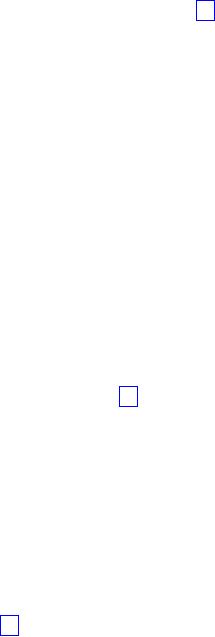 |
Preprocessing |
| << Containers:Cont::const_reference, difference_type, reverse_iterator |
| Standard C++ Library Header Files:bitset, conj, cos, showpoint, streampos >> |

Chapter
11. Preprocessing
The
translator processes each
source file in a series of
phases. Preprocessing
constitutes
the earliest phases, which
produce a translation unit
(page 50).
Preprocessing
treats a source file as a
sequence of text lines (page
17).
You can
specify
directives
and
macros
that
insert, delete, and alter
source text.
This
document describes briefly
just those aspect of
preprocessing most relevant
to
the
use of the Standard C
library:
The
macro __FILE__
expands
to a string literal (page 9)
that gives the
remembered
filename
of the current source file.
You can alter the
value of this macro by
writing
a
line
directive.
The
macro __LINE__
expands
to a decimal integer constant
that gives the
remembered
line number within the
current source file. You
can alter the value
of
this
macro by writing a line
directive.
A
define
directive
defines
a name as a macro. Following
the directive name define,
you
write one of two
forms:
v
a
name not
immediately
followed by a left parenthesis,
followed by any
sequence
of preprocessing tokens -- to define a
macro without
parameters
v
a
name immediately followed by a
left parenthesis with no
intervening
white
space,
followed by zero or more
distinct parameter
names separated
by commas,
followed
by a right parenthesis, followed by
any sequence of
preprocessing
tokens
-- to define a macro with as many
parameters as names that you
write
inside
the parentheses
You
can selectively skip groups
of lines within source files
by writing an if
directive,
or one of the other
conditional
directives,
ifdef
or
ifndef.
You follow the
conditional
directive by the first group
of lines that you want to selectively
skip.
Zero
or more elif
directives
follow this first group of
lines, each followed by
a
group
of lines that you want to selectively
skip. An optional else
directive
follows
all
groups of lines controlled by
elif
directives,
followed by the last group
of lines
you
want to selectively skip. The
last group of lines ends
with an endif
directive.
At
most one group of lines is
retained in the translation
unit -- the one
immediately
preceded by a directive whose if
expression (page 49)
has a nonzero
value.
For the directive:
#ifdef
X
this
expression is defined
(X), and
for the directive:
#ifndef
X
this
expression is !defined
(X).
An
if
expression is a
conditional expression that
the preprocessor evaluates.
You
can
write only integer constant
expressions (page 15),
with the following
additional
considerations:
v
The
expression defined
X, or
defined
(X), is
replaced by 1 if X
is
defined as a
macro,
otherwise 0.
49

v
You
cannot write the sizeof
(page 16)
or
type
cast operators.
(The translator
expands
all macro names, then
replaces each remaining name
with 0, before it
recognizes
keywords.)
v
The
translator may be able to
represent a broader range of
integers than the
target
environment.
v
The
translator represents type
int
the
same as long,
and
unsigned
int the
same as
unsigned
long.
v
The
translator can translate
character constants to a set of
code values different
from
the set for the target
environment.
An
include
directive includes
the contents of a standard
header or another
source
file
in a translation unit. The
contents of the specified
standard header or
source
file
replace the include
directive.
Following the directive name
include, write
one of
the
following:
v
a
standard header name between
angle brackets
v
a
filename between double
quotes
v
any
other form that expands to
one of the two previous
forms after macro
replacement
A
line
directive
alters
the source line number and
filename used by the
predefined
macros
__FILE__ (page 49)
and __FILE__. Following the
directive name line,
write
one
of the following:
v
a
decimal integer (giving the
new line number of the line
following)
v
a
decimal integer as before,
followed by a string literal
(giving the new line
number
and the new source
filename)
v
any
other form that expands to
one of the two previous
forms after macro
replacement
Preprocessing
translates each source file
in a series of distinct phases.
The first few
phases
of translation: terminate each
line with a newline character
(NL),
convert
trigraphs
to their single-character equivalents,
and concatenate each line
ending in
a
backslash (\) with
the line following. Later
phases process include
directives
(page
50),
expand macros, and so on to produce a
translation
unit. The
translator
combines
separate translation units, with
contributions as needed from
the
Standard
C library, at link
time, to form
the executable program.
An
undef
directive
removes
a macro definition. You
might want to remove a
macro
definition
so that you can define it
differently with a define
directive
or to unmask
any
other meaning given to the
name. The name whose
definition you want to
remove
follows the directive name
undef. If the
name is not currently
defined as a
macro,
the undef
directive
has no effect.
50
Standard
C++ Library
Table of Contents:
- C++ Library
- C++ Library Overview:Using C++ Library Headers, Iostreams Conventions
- Characters:Escape Sequences, Multibyte Characters, Wide-Character Encoding
- Expressions
- Files and Streams:Text and Binary Streams, Controlling Streams, Stream States
- Indefinite Integrals of Logarithmic Functions:Combinations of Logarithms and Polynomials, The Logarithm
- Formatted Input:Scan Formats, Scan Functions, Scan Conversion Specifiers
- Formatted Output:Print Formats, Print Functions, Print Conversion Specifiers
- STL Conventions:Iterator Conventions, Algorithm Conventions
- Containers:Cont::const_reference, difference_type, reverse_iterator
- Preprocessing
- Standard C++ Library Header Files:bitset, conj, cos, showpoint, streampos
- Standard Template Library C++:adjacent_find, copy_backward, lexicographical_compare
- Appendix. Type Traits:Helper Class, Primary Type Categories, Binary Type Traits
- Notices:References, Bug Reports